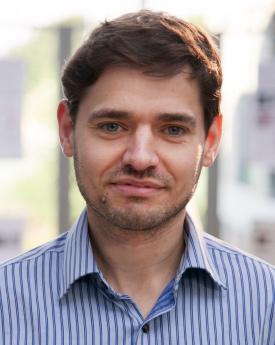
Nuclear
Lancaster hosts one of the UK’s strongest university-based nuclear centres with internationally recognised capabilities.
We specialise in:
- nuclear safety and policy
- radiation detection and safeguards
- control and robotics
- decommissioning and waste management
- nuclear process chemistry
- environmental behaviour
- optimal nuclear fuel cycles
Our research capabilities are applied in the industrially and strategically important areas of decommissioning and clean up, waste management, geological disposal, nuclear safety and regulation, safeguards and security, fuel cycle development, existing operation support and new build generation III reactors and future generation IV reactors e.g. molten salt reactors.
Lancaster leads the new Lloyd's Register Foundation International Joint Research Centre for the Safety of Nuclear Energy, which is a joint undertaking with the Universities of Harbin (China), Tennessee and Coventry, is a partner in the Next Generation Nuclear Centre for Doctoral Training with Manchester, Leeds, Sheffield and Liverpool, and is active in supporting the work of government.
For example, we are leading a joint EPSRC/Department of Energy & Climate Change project, in collaboration with the University of Liverpool and the Culham Centre for Fusion Energy, for the second phase of the National Nuclear Users' Facility, which will enable the most sensitive neutron multiplicity calorimeter in the world to be established based on Lancaster capability.
In addition, bilateral cooperation with ETHZ, Switzerland, is also carried out in the field of nuclear material analysis. Finally, optimisation of the nuclear fuel cycle combining extraction of uranium from seawater and its burning in small modular molten salt reactors is also studied at the laboratory level.
Publications
A comparison of plutonium abundance in soil from sites in the United Kingdom measured with high-efficiency, high-resolution y-ray spectroscopy, neutron assay and accelerator mass spectrometry
C. Tighe, M. Christl, C. Degueldre, J. Andrew, M. J. Joyce
Proceedings Plutonium Futures (2018)
Neptunium (IV) hydroxamate complexes: the speciation and kinetics and mechanism of hydrolysis
S. Edward, F. Andrieux, C. Boxall, M. Sarsfield, R. Taylor, D. Woodhead
Dalton Transaction, 48, 2 (2019) 673-687
Raman Studies of Advanced Gas-Cooled Reactor Simulated Spent Nuclear Fuels
Wilbraham, R.J., Rauff-Nisthar, N., Boxall, C., Howett, E., Hambley, D., Hiezl, Z., Lee, W., Padovani, C.
Progress Nucl. Sci. Technol. 5 (2018) 213-216
Nuclear fuel cycle, from liquid uranium ore to liquid fuel in the reactor: toward a renewable source of energy
Claude Degueldre, Richard Dawson, Vesna Nadjanovic-Visak
Sustainable Energy Fuels, 3 (2019) 1693–1700
A fast and portable imager for neutron and gamma-emitting radionuclides
Hajir Al Hamrashdi, David Cheneler, Stephen D. Monk
Nuclear Instruments and Methods in Physics Research Section A: Accelerators, Spectrometers, Detectors and Associated Equipment, Volume 953, 11 February 2020, Article 163253
Theme Members
Dr Fabrice Andrieux
Senior LecturerCentre for Global Eco-innovation , Chemical Engineering Research Group, Doctorate Centre in Nuclear Engineering, Energy Lancaster, Nuclear
Professor Colin Boxall
The Lloyd's Register Foundation ChairCentre for Global Eco-innovation , Doctorate Centre in Nuclear Engineering, Energy Lancaster, Nuclear
Professor Malcolm Joyce
Distinguished Professor & Royal Society Wolfson Research Merit Award HolderDoctorate Centre in Nuclear Engineering, Energy Lancaster
Lancaster Intelligent, Robotic and Autonomous Systems Centre, LIRA - Advanced Manufacturing, LIRA - Biomedical, LIRA - Environmental Modelling, LIRA - Extreme Environments, Nuclear






